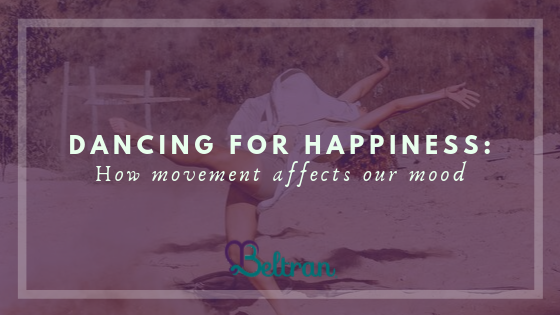Have you ever noticed that after a particularly hard day, turning on your favorite song and dancing around a bit can do wonders to improve your mood? Music and moving to a rhythm have a profound impact on our state of mind. For centuries, everyone from philosophers to psychologists have studied and praised the effects of dancing. Nietzsche, albeit a rather controversial figure, once said, “We should consider every day lost on which we have not danced at least once.”
Is such praise of dancing—this link to happiness—purely a phenomenon? Perhaps not. Multiple studies have linked dancing and movement to increased levels of happiness. It makes sense when you think about it. Thanks to a release of endorphins, exercise of any sort has been linked to an improvement in mood. So, why should dance be any different?
In addition to an endorphin rush, dancing offers a sense of emotional release. Through movement, we have the ability to channel negative emotions and let them go. Flowing from their point of origin and being released as our limbs stretch and reach, pain, anger, and fear can leave our bodies. Such release is a powerful tool when it comes to healing, and science has proved as much.
A 2012 study conducted at Australia’s University of New England, researchers found that participants who learned to tango reported lower levels of anxiety, stress, and depression. In some cases, dance was more effective at lowering anxiety than meditation. Further research by the university discovered that the pleasure circuits in the brain had been triggered by music and movement.
What’s more, a separate study by Swedish researchers learned that teenage girls who regularly danced—whether as a hobby or competitively—had higher self-esteem than girls who didn’t dance. Though we can’t exactly prove why dance improves self-esteem from a scientific standpoint, we can make some informed guesses. I’ve found that the more we move, and feel comfortable with our movements, the more self-assured we become. Our self-confidence improves because we learn to trust and respect the power of our bodies.
Though it may seem silly at first, the next time you experience a bad mood or have had a rough day, try playing some music and moving to the rhythm. You don’t have to be a great dancer to experience the rush of happiness it can bring. Let your body and emotions guide you to the beat of the music. Imagine your negative emotions flowing through your veins and exiting your body through the tips of your fingers and toes. Reach towards the feelings you want and be present in the moment. You’ll be surprised at how relieved and happy you feel.


